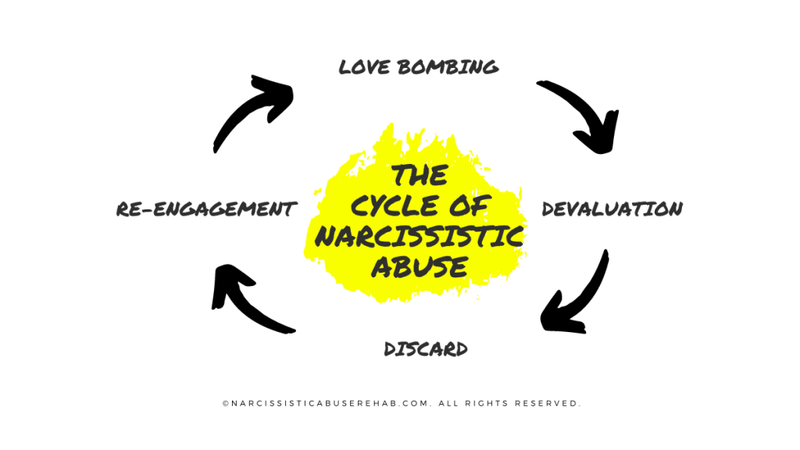Narcissists are known for their manipulative and cunning behaviors. When they sense that their mask is slipping, and you are onto their true nature, they often escalate these tactics to maintain control.
This guide explores 16 specific actions that narcissists might take to confuse, guilt, or manipulate others around them.
1. Suddenly Love-Bombing to Pull You Back In
When a narcissist fears they are losing their grip, they may suddenly start bombardamento d'amore you. This means overwhelming you with affection, gifts, and compliments in order to reel you back in. It’s a manipulative tactic meant to distract you from their previous behavior.
The sudden change in demeanor can be disorienting, leaving you questioning your earlier perceptions. Love-bombing creates a whirlwind of positive reinforcement that can confuse your judgment.
This tactic is designed to make you doubt your instincts and the concerns you had about their behavior. The aim is to make you feel guilty for doubting them, thereby re-establishing control and dependency.
2. Playing the Victim to Gain Sympathy
Narcissists often play the victim card when they suspect you’re onto them. By portraying themselves as misunderstood or wronged, they aim to evoke sympathy and shift the focus away from their own actions.
This tactic can be particularly effective in swaying others to their side, as people generally want to support someone they believe is suffering. It allows the narcissist to paint you as the antagonist, thereby deflecting attention from their own behavior.
By casting themselves as the victim, they can manipulate friends or family into rallying around them, creating an illusion of support and further isolating you.
3. Denying Obvious Facts and Rewriting History
One favorite tactic of narcissists is to deny clear facts and rewrite history. When confronted, they may outright deny events or reinterpret past occurrences to cast themselves in a better light.
This can lead to confusion and self-doubt, making you question your memories and the reality of situations. The goal is to destabilize your perception of truth, making it easier for them to manipulate you.
By rewriting history, they seek to control the narrative and maintain their version of events, no matter how distorted it may be. It’s a powerful way to maintain power and keep you off-balance.
4. Accusing You of Being the Narcissist
In a classic projection tactic, a narcissist might accuse you of being the narcissist. This reversal is designed to make you question your sanity and intentions.
By turning the tables, they aim to confuse the situation and deflect responsibility for their own behavior. This accusation can be especially damaging, as it targets your self-perception and attempts to make you doubt yourself.
The intent is to destabilize your confidence and put you on the defensive, allowing them to regain control and shift the focus away from their manipulations.
5. Recruiting Others to Turn Against You (Triangulation)
Triangulation is a favorite strategy for narcissists who feel exposed. They recruit others to their side, often by spreading misinformation or sowing seeds of doubt about you.
This tactic creates a web of confusion and division, making it hard to find support or validation. By turning others against you, they aim to isolate you and weaken your position within your social circle.
The goal is to create an environment where you are outnumbered and unsupported, making it easier for them to control the narrative and maintain their power.
6. Gaslighting Harder to Make You Second-Guess Yourself
Gaslighting is a common tool in the narcissist’s arsenal, and they will amplify this behavior if they feel threatened. By persistently questioning your reality and perceptions, they aim to make you doubt your sanity.
This can lead to feelings of confusion and helplessness as you struggle to trust your own judgment. The intensified gaslighting is meant to wear you down, making you more compliant and easier to control.
It’s a calculated effort to undermine your confidence, ensuring that you remain dependent on them for validation and reality checks.
7. Threatening to Leave or Cut Ties First
When a narcissist suspects exposure, they might threaten to leave the relationship first. This preemptive move is designed to assert control and instill fear of abandonment.
The threat of leaving is often a bluff, meant to make you feel desperate to hold onto the relationship. It’s a manipulative tactic to keep you placated and compliant.
By suggesting they might end things, they aim to shift the power dynamic, keeping you on edge and more likely to acquiesce to their demands.
8. Spreading False Stories About You
Narcissists often resort to spreading false stories to tarnish your reputation. By sharing lies or exaggerated tales, they aim to discredit you and protect their own image.
This tactic can be particularly damaging, as it influences how others perceive you, potentially causing you to lose support and credibility. The goal is to isolate you, making it harder for you to challenge their narrative.
Through this smear campaign, they reinforce their control, ensuring that their version of events is the one that dominates.
9. Alternating Between Kindness and Cruelty
The switch between kindness and cruelty is a hallmark of narcissistic behavior, keeping you in a perpetual state of uncertainty. One moment they may be generous and affectionate, only to turn cold and harsh the next.
This unpredictability keeps you on edge, constantly trying to appease them and avoid their wrath. It’s a strategic move to maintain power and control over you.
By alternating between these extremes, they create a dependency, making you crave their approval and fear their disapproval.
10. Pretending They’ve Changed Overnight
When caught, a narcissist might pretend they’ve changed completely. Overnight transformations are designed to convince you they’ve turned over a new leaf.
This sudden shift is often superficial, aimed at placating you and buying time to regain their footing. They may adopt new behaviors, attitudes, or habits to reinforce this illusion.
Such attempts at change are rarely genuine, instead serving as a temporary fix to keep you engaged in the relationship.
11. Sabotaging Your Other Relationships
Narcissists often work to sabotage your relationships with others. By spreading lies or creating conflict, they aim to isolate you and make you more dependent on them.
This tactic can lead to mistrust and misunderstandings, driving a wedge between you and your support network. The goal is to ensure that they remain your primary source of emotional and social support.
By undermining these relationships, they maintain control and keep you in their orbit, making it harder for you to break free.
12. Bombarding You with Calls and Texts
When a narcissist feels their control slipping, they may bombard you with calls and texts. This constant communication is meant to overwhelm and keep you focused on them.
The barrage of messages can be exhausting, leaving you with little time or energy for anything else. It’s a way to assert dominance and ensure you remain centered on their needs.
By monopolizing your attention, they prevent you from gaining perspective or seeking support elsewhere, keeping you tethered to the relationship.
13. Claiming They’re Misunderstood and You’re Unfair
Narcisisti often claim they are misunderstood when confronted. By framing you as unfair or overly critical, they aim to redirect the blame.
This tactic serves to deflect attention from their behavior, painting them as the true victim of the situation. It can evoke sympathy from others, further isolating you.
By insisting that your judgment is flawed, they reinforce their hold over the narrative, ensuring their version of events prevails.
14. Using Guilt to Manipulate Your Choices
Guilt is a powerful tool in a narcissist’s arsenal. By making you feel responsible for their happiness or well-being, they manipulate your choices.
This emotional leverage can make you prioritize their needs over your own, leading to feelings of obligation and self-doubt. It’s a way to control your actions without direct confrontation.
By wielding guilt, they maintain influence over your decisions, ensuring that their desires come first.
15. Acting Calm While Provoking You to Overreact
Narcissists often remain calm while subtly provoking you to overreact. This tactic is designed to make you appear unreasonable or unstable.
Their composed demeanor in contrast to your frustration can be used to discredit you, reinforcing their image as the rational party. It creates a scenario where you seem to be the problem.
By pushing your buttons and maintaining their calm, they manipulate situations to their advantage, maintaining control and public perception.
16. Withdrawing Affection to Punish You
Trattenere l'affetto is a common punishment tactic used by narcissists. When they feel threatened, they may withdraw love and attention to assert control.
This cold shoulder treatment can be emotionally painful, making you strive to regain their favor. It’s a way to maintain dominance by keeping you off-balance emotionally.
By using affection as a bargaining chip, they manipulate your emotions and ensure compliance.

















